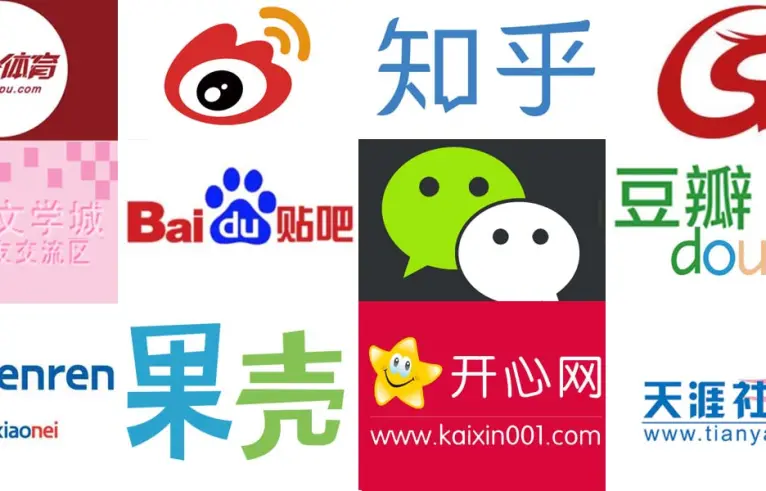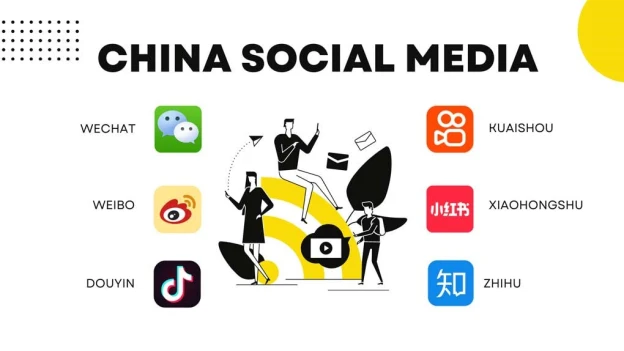
Which social networks in China are suitable for traffic arbitrage?
Russian arbitrageurs can no longer rely on stable work with Western platforms, which is why they are particularly interested in Chinese social networks. This is not surprising, as the Eastern (particularly Chinese) traffic market has a substantial audience, although working in it has its peculiarities. Without considering these, work in China is simply impossible. We offer you an overview of the most popular Chinese platforms with a description of the general principles of working on them.
The first thing you need to do before starting work with any of the social networks in China is to register in it. The SMS activation service Grizzly SMS will help you with this. Only with us will you find reliable virtual numbers for creating accounts on WeChat, Douyin, Weibo, Tencent QQ, Bilibili, and many other internet platforms. We guarantee complete anonymity to all clients and ensure SMS delivery at a reasonable price. Try our SMS activator and see for yourself today!
Chinese social networks: features

Before moving on to reviewing specific platforms, it's important to understand: to work effectively in Chinese social networks, arbitrageurs need to bypass the "Golden Shield" system, which has been blocking access to many Western platforms since 2003. However, despite these restrictions, there are alternative platforms such as Baidu, Weibo, and WeChat that provide sufficient traffic volume.
Chinese social networks are attractive to webmasters due to the huge population and peculiarities of the Asian mentality, which allows for quick cost recovery and profit.
When arbitraging traffic in China, it's important to consider local features:
- predominance of mobile traffic;
- absence of CPA networks;
- difficulties in tracking traffic sources due to user behavior peculiarities;
- need to use more text, red and yellow colors, short videos;
- mandatory translation of advertising into Chinese;
- avoiding the use of "bad" numbers, such as 4.
Now let's look at what social networks are there in China.

WeChat is the most popular social network in China and one of the largest social networks in the world, ranking in the top 5 by number of users. Initially, it was a messaging application, but today WeChat has turned into a popular messenger, including many everyday services such as taxis, bill payments, and shopping. WeChat allows creating stores on the platform with online payments and exchange of new products, creating chats of up to 500 users for communication with customers. Corporate account registration is only available for Chinese companies or through partners. Mini-programs allow creating applications within the social network for food ordering, ticket booking, etc.
Statistics of the social network in China:
- 1.17 billion monthly active users;
- 82 minutes per day - average time spent by users on the social network.
Pros:
- ease of use;
- wide range of functions;
- integration with social networks;
- multi-platform support.
Cons:
- no settings for notifications and no option to turn them off;
- inability to change status;
- lack of response to phone rotation.
Douyin

Douyin is a Chinese social network featuring short videos, similar to the Western TikTok. The service's audience comprises over a billion users. Douyin allows recording and posting short videos with the ability to add text, music, stickers, filters, and special effects.
Statistics of the social network operating in China:
- 518 million monthly active users;
- 88 minutes - average time users spend on the social network daily.
Pros:
- easy content monetization;
- convenient in-platform application for content creation;
- huge audio library;
- ability to purchase a product shown in the video in just three clicks.
Cons:
- only available in China;
- subject to censorship.

Weibo is a Chinese social network, conceived as an analogue to Twitter, but over time becoming more similar to VKontakte due to its expanded functionality. Weibo has over half a billion active registered users. The platform allows publishing short messages with photos and links, which can be liked, retweeted, and commented on.
Statistics:
- 533 million monthly active users;
- 57 minutes - average time users spend on the social network daily.
Pros of this popular social network in China:
- convenient e-commerce tool;
- hashtag function facilitates content search;
- possibility of account monetization through advertising.
Cons:
- strict censorship;
- corporate account registration requires statutory documents and a license.
Tencent QQ

QQ is a messenger from Tencent, one of the oldest and most popular in China. It was released in 1999 and became the second most popular messenger after WeChat. QQ is used for sending text and voice messages, photos, and files.
Statistics of the most convenient of available Chinese social networks:
- 844 million monthly active users;
- 65 minutes - average time users spend on the messenger daily.
Pros:
- no restrictions on the size of uploaded files;
- desktop version with wide functionality;
- convenient promotion through thematic groups;
- available linking of Russian operator numbers.
Cons:
- video advertising in the messenger is the most expensive;
- the application is in Chinese, so you need to intuitively understand how it works.
Youku

Youku is a Chinese video platform, analogous to YouTube and Netflix, actively used for promotion and traffic attraction, like other popular social networks in China. The platform offers a wide selection of video content: movies, TV series, TV shows, music, news, replacing classic television.
Statistics:
- 600 million monthly active users;
- 85 minutes - average time users spend on the platform daily.
Pros:
- huge audience, although it's not the most popular social network in China;
- different advertising formats: video clips, pre-rolls, post-rolls, banner ads;
- ability to upload user videos.
Cons:
- lack of thorough user segmentation;
- payment required for ad-free video viewing (about 200 CNY per year).
Bilibili

Bilibili is a Chinese social network for video sharing, created in 2009. Initially focused on anime and video games, the platform now covers any content. Active interaction in comments displayed directly on the video is encouraged here. The danmu ("bullet curtain") function - a running line of comments overlaid on the video - enhances engagement, and over 80% of the audience is young people aged 18 to 35.
Statistics:
- 200 million monthly active users;
- 83 minutes - average time users spend on the network daily.
Pros of this social network in China:
- wide selection of video content;
- opportunity to earn from content creation;
- great potential for traffic arbitrage.
Cons:
- paid subscription required to disable ads;
- predominantly young audience, which is important to consider when developing creatives.




































